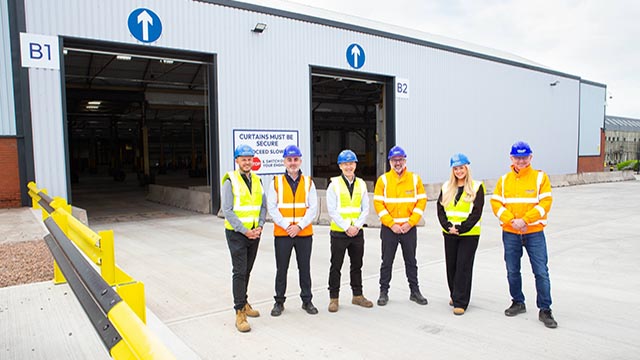Arriving for a breakfast meeting this week, a contact extinguished his first cigar of the day. It may have been more cigarillo than Montecristo, but it wasn’t yet 7.30am. It seemed the perfect market metaphor.
Many investors are already ruing missed opportunities; a wish that they had risen earlier is inevitable when so many markets have gone from near-bust to part-boom so quickly. And few are yet in raucous celebration mood, even if all the indicators are pointing in the right direction.
Given the pain of the preceding five years – and hope turning to expectation that GDP will overtake its pre-crisis peak this summer – a short, narrow cigar seems appropriate.
The strength of sentiment is highlighted in the latest Commercial Property Confidence Monitor from Lloyds Bank and the Investment Property Forum. The expectation among the 500 real estate respondents is that values will rise, the economy will further strengthen and, for two-thirds of those polled at least, even rising interest rates would not dampen investment enthusiasm. Which is a good thing, given that the message from the Bank of England’s Monetary Policy Committee this week was that rates could rise sooner – and more sharply – than previously thought.
The survey also reinforces the view held in many big UK cities over the past several months that their recovery is now entrenched. Four in five respondents expect the market to perform better over the next two quarters – the highest level since the survey began in 2010.
Indeed, some respondents clearly fear that London has become overheated and opportunity now lies beyond the capital. Many of the institutions I talk to clearly hold this view and it can’t be a coincidence that the most optimistic group polled in the survey are fund managers. They more than anyone should rue missed opportunities; for optimism read intent.
There’s more than sentiment at play; propco results this week also encouraged. Max Property Group said it would begin returning cash to shareholders earlier than expected. Meanwhile, analyst Mike Prew of Jeffries suggested that given how well Great Portland Estates had performed in recent years it shouldn’t just cash in on some extremely attractive assets, it may be time to sell the business. Now, it seems, flipping is back (p30).
All this good news begs the question: have we learned enough lessons from the pain of recent years to manage the good times better this time around?
¦ While recognition of the need for infrastructure investment to maintain market momentum is near universal, the industry is railing against HS2. Developers, investors and tenants are lining up to object to the legislation that will set in train the £50bn project. Their fear, a grounded one, is that business disruption will be widespread and any compensation paid will be derisory.
Objectors to plans for the London-Birmingham section have until next week to declare themselves. So far more than 400 have done so.
Putting money to one side for a moment, there is a principle that HS2 (and similar infrastructure projects) should not interfere with private property unless proven “necessary for the purposes of the bill and to be in the public interest”. Land Securities, which owns lucrative hotel assets at either end of the line, says it has yet to see anything that justifies a compulsory purchase.
Zurich Assurance, Threadneedle Asset Management, Prologis, St Modwen, Derwent London and others object on similar grounds.
Occupiers, such as Sainsbury’s, argue that their ability to trade in many locations will be hit. Royal Mail and the Post Office also object, as does local government: Kensington & Chelsea says a £1.1bn development opportunity on Kensal Gasworks would be threatened.
It will take more than objections from the commercial property industry to derail HS2. But, should it push ahead, the government has as big a responsibility to commercial landlords and tenants as it does to residential property owners: it should strive to minimise the impact and compensate properly. Will ministers listen?
Damian.Wild@estatesgazette.com











